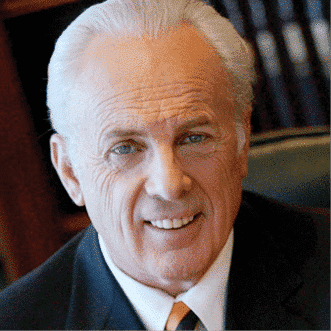
“Praise the name of the Lord, for His name alone is exalted; His glory is above earth and heaven.” (Ps 148:13)
In the entire universe, there is nothing loftier or more important than the glory of the Lord. God’s glory constitutes the whole purpose for which we were created. Indeed, this is the ultimate reason for everything that has ever happened—from the dawn of creation until now. “The heavens are telling of the glory of God” (Ps 19:1). The sun, the moon, and the stars of light all praise Him (Ps 148:3). “His glory is above earth and heaven” (v. 13). “The whole earth is full of His glory” (Isa 6:3). Even the beasts of the field bring Him glory (Isa 43:20).
This is what gives meaning to our existence: God is putting His glory on display, and it is our unspeakable privilege to participate in that demonstration and to savor the joy of it without ceasing.
That, of course, is the very first lesson taught in both the Larger and Shorter Catechisms:
Q1: What is the chief and highest end of man?
A: Man’s chief and highest end is to glorify God, and fully to enjoy him forever.
That is also a succinct summary of everything Scripture teaches about why God made us in the first place. He did not create us because He was bored or lonely. He made us so that He could glorify Himself through us.
Despite all the talk among contemporary evangelicals about “purpose-driven” life and ministry, the most important point of all is too often obscured or omitted. Our one ultimate purpose is to glorify God—to celebrate and reflect His glory; to magnify Him; and to “tell of His glory among the nations” (Ps 96:3).
That is God’s eternal plan, and it was not thwarted or changed when the entire human race fell because of Adam’s rebellion. In fact, it is the whole reason for the gospel. The redeemed are “predestined according to His purpose who works all things after the counsel of His will, to the end that we . . . would be to the praise of His glory” (Eph 1:11-12, emphasis added).
God is doing all of this for His own name’s sake (Ps 25:11; 31:3; 79:9; 109:21; Jer 14:21; Rom 1:5; 1 John 2:12). His mercy and our salvation are not granted in our honor, as if to exalt us. We’re not raised from our fallen condition for our own sake, to give us an elevated sense of self-esteem. All glory belongs to the Lord, and to Him alone. As David prayed, “Yours, O Lord, is the greatness and the power and the glory and the victory and the majesty, indeed everything that is in the heavens and the earth; Yours is the dominion, O Lord, and You exalt Yourself as head over all” (1 Chr 29:11).
God is very jealous of His glory. He says emphatically: “I am the Lord, that is My name; I will not give My glory to another” (Isa 42:8).
Too often we speak of “God’s glory” without really contemplating what the expression means. It is not an easy concept to define. We are dealing with something that is infinite, unfathomable, inconceivable, and utterly foreign to fallen human minds—something so pure and powerful that an unobstructed, unmediated view of it would be fatal to our sinful flesh (Ex 33:20; Isa 6:5; 1 Tim 6:16).
The Oxford English Dictionary defines glory as “resplendent majesty, beauty, or magnificence.” But the glory of God entails much more than that. It includes His holiness, His absolute perfection, and the stunning radiance of unapproachable light. God’s glory is the very essence of beauty, majesty, and splendor. It likewise includes His justice, power, and wrath. It is at once captivating and terrifying. It is a reality so sublime that if we were permitted one glimpse of it, we would never want to look away.
God’s glory embodies everything praiseworthy and everything we ought to desire. It is the centerpiece of heaven’s joys, so radiant and all-pervasive that it totally eliminates the need for any other source of illumination in the realm where God dwells (Rev 21:23). Heaven will never be boring or monotonous precisely because God’s glory will be on full display throughout every detail of the new heavens and new earth. In short, no other charm or pleasure could conceivably provoke more wonder, interest, or delight. Best of all, God’s glory will never lose its appeal or its luster.
John Gill (London’s leading Baptist preacher a century before Spurgeon’s time) pointed out that if God’s glory occupies so lofty a place in the plan of God, it ought therefore to have first place in every Christian’s priorities. He wrote,
God’s glory is the end [the goal and purpose] of all his works and actions; in creation, providence, and grace; in election, in the covenant, in the blessings and promises of it, in redemption, in the effectual calling, and in bringing many sons to glory. The same is the end of all Christ’s actions, as man and Mediator, of his doctrines and miracles, of his obedience, sufferings, and death in this world, and of his interceding life in the other; who, as he lives to make intercession for us, lives unto God, to the glory of God; and therefore the glory of God should be the end of all our actions: besides, without this no action can be truly called a good one; if a man seeks himself, his own glory, and popular applause, or has any sinister and selfish end in view in what he does, it cannot be said, nor will it be accounted by God to be a good action.
Gill’s observation applies in particular to preachers. To paraphrase him: If a preacher exalts himself; seeks to exhibit his own glory; craves admiration or applause; or has any greedy or self-serving design in his sermon, it cannot be said (nor will it be accounted by God) to be legitimate preaching.
The preacher’s one job is to proclaim the whole counsel of God in a way that makes the gospel clear and magnifies the glory of God. “We do not preach ourselves but Christ Jesus as Lord . . . . For God, who said, ‘Light shall shine out of darkness,’ is the One who has shone in our hearts to give the Light of the knowledge of the glory of God in the face of Christ” (2 Cor 4:5-6, emphasis added). The Word of God is our text; the gospel message is the crux of it; Christ is its main theme and central character; and the glory of God is the ultimate purpose. All of that is implied in the apostle’s instruction to Timothy: “Preach the word . . . in season and out of season” (2 Tim 4:2).
Notice: “We do not preach ourselves.” That statement is contrary to every dominant style of contemporary ministry. Pulpits today are full of narcissists and self-promoters. But no preacher who is thinking properly about the glory of God would ever want to uplift himself or make himself the focus of a sermon. Humility is the natural expression of a God-glorifying attitude. The person who is egotistical or self-absorbed has never really understood the grandeur of God’s glory.
At the same time, our knowledge of God’s glory ought to make us bold for the truth. You can tell a preacher is focused on God’s glory when he fearlessly proclaims the hard or unpopular truths regardless of whatever opposition, criticism, or persecution he receives as a result.
The preacher who keeps God’s glory in proper focus will likewise be indifferent to praise and flattery. To see the glory of God is to understand that nothing else really matters in the ultimate sense.
Obviously, the supreme renown of God’s glory is a priority no minister should ever lose sight of. But remember, the same principle governs every activity in every believer’s life: “Whether, then, you eat or drink or whatever you do, do all to the glory of God” (1 Cor 10:31). Everything we do—mundane things as well as Christian ministry—must be done for the glory of God. That is the top priority and the bottom line in all our lives. It is the most important thing in the universe.
Consider this: a universe full of galaxies was made to glorify God, and for the most part all of His vast creation cooperates. The animal kingdom never rebelled against God. The earth is still full of His glory. The stars continually bear mute but powerful testimony to His glory, just as they have done from the dawn of creation. “The heavens declare His righteousness, and all the peoples have seen His glory” (Ps 97:6). “Since the creation of the world His invisible attributes, His eternal power and divine nature, have been clearly seen, being understood through what has been made” (Rom 1:20).
Out of all creation, only the two highest of God’s creatures ever rebelled against Him. A third of the angelic host (Rev 12:4), and all of humanity, sinned. They tried to refuse the singular purpose for which they were made. They disclaimed the glory of God and wished instead to exalt themselves. “Even though they knew God, they did not honor Him as God or give thanks, but they became futile in their speculations, and their foolish heart was darkened” (Rom 1:21).
This rebellion will ultimately only amplify the glory of God, because He will glorify Himself in the defeat of evil and the triumph of divine justice. Even the wrath of men will praise Him (Ps 76:10).
Meanwhile, glorifying God is the ultimate goal of every duty God has ever given us. It remains the supreme purpose for which He created and then redeemed us. So the fundamental issue and the basic consideration that should govern everything we do is summed up in this simple question: Will it glorify God?
Alongside that simple query is a host of related factors to consider. Can this thing that I am doing (and the way that I am doing it) truly honor God? Does it reflect His character or exemplify His goodness or otherwise pay homage to Him? Can I sincerely praise and thank Him while doing it? Does it make me more fit to serve Him, or otherwise enhance my labor in the Lord? Is it Christlike—consistent with the righteous character of our glorious God?
Now, this seems like a simple principle, and it is. It’s simple, but it’s not easy. We all know from bitter experience what a struggle it is to maintain a proper focus on the glory of God in this fallen world. In Paul’s words, “I know that nothing good dwells in me, that is, in my flesh; for the willing is present in me, but the doing of the good is not” (Rom 7:18). Evil and temptation continually assault us, and it is much too easy to become preoccupied with the cares and crises of our mundane lives. Our priorities continually need to be reordered to keep the first thing first.
Scripture is full of encouragement and instruction that addresses this very problem. For example, the apostle Paul reminds us that we belong to the Lord and His Spirit indwells us. Sins of the flesh dishonor His dwelling place. “Do you not know that your body is a temple of the Holy Spirit who is in you, whom you have from God, and that you are not your own? For you have been bought with a price: therefore glorify God in your body” (1 Cor 6:19-20, emphasis added).
Furthermore, because the Holy Spirit permanently indwells believers today, we have a lasting connection with God’s glory such as no Old Testament saint ever enjoyed. In fact, Scripture highlights the stark difference between the experience of Moses and the way Christians in this era relate to the glory of God.
Moses’ face shone temporarily with a brilliant reflection of God’s glory. The Israelites were so frightened by the phenomenon that Moses had to hide the glow behind a veil. But over time, the reflected glory faded away (2 Cor 3:7).
In sharp contrast to that, Scripture says, God’s glory actually indwells today’s believers in the person of the Holy Spirit. He is transforming us from the inside out—conforming us to the image of Christ—“from glory to glory” (2 Cor 3:18). In other words, God’s glory shines from within us; it is not merely a reflection. And it shines with ever-increasing brilliance rather than diminishing with time.
Meanwhile, “with unveiled face, [we behold] as in a mirror the glory of the Lord” (v. 18). Moses saw only a shielded view of God’s back as He passed by. We are invited to gaze intently and face-to-face at God’s glory from an up-close perspective (“as in a mirror”), without a veil of any kind. Through the Spirit who indwells us we have an unbreakable union with Christ. (“By this we know that we abide in Him and He in us, because He has given us of His Spirit”—1 John 4:13.) God’s glory is perfectly revealed in Christ (John 1:14). So, we have unfettered access to the divine glory.
Pastors, bear these truths in mind as you preach the Word. I am an unapologetic advocate of verse-by-verse biblical exposition. I am committed to preaching that is Christ-centered and gospel-oriented. But the glory of God is the singular goal and the all-important thread that ties all those ideas together and keeps them in proper focus.
Here’s the point: if the theme of God’s glory doesn’t permeate, energize, and anchor all your preaching, you’re doing it wrong. It is not enough simply to follow a certain format in your preaching. What is most essential is that in God be glorified.

John MacArthur is the pastor-teacher of Grace Community Church in Sun Valley, California, as well as an author, conference speaker, president of The Master’s College and Seminary, and featured teacher with the Grace to You media ministry.






